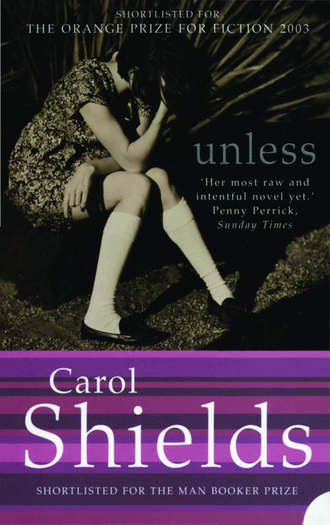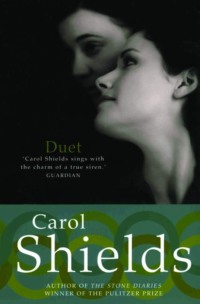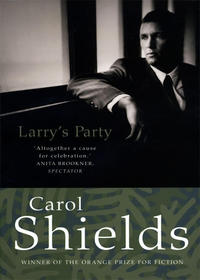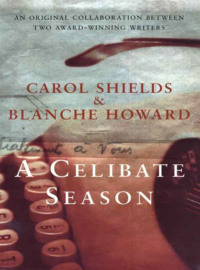
Полная версия
Unless
I was the one who invited him to launch into the subject. Relativity is a piece of knowledge I’ve always longed to understand, a big piece, but the explainers tend to go too fast or else they skip over a step they assume their audience has already absorbed. Apparently, there was once a time when only one person in the world understood relativity (Einstein), then two people, then three or four, and now most of the high-school kids who take physics have at least an inkling, or so I’m told. How hard can it be? And it’s passed, according to Colin, from crazy speculation to confirmed fact, which makes it even more important to understand. I’ve tried, but my grasp feels tenuous. So, the speed of light is constant. Is that all?
Ordinarily, I love these long August evenings, the splash of amber light that falls on the white dining-room walls just before the separate shades of twilight take over. The medallion leaves that flutter their round ghost shadows. All day I’d listened to the white-throated sparrows in the woods behind our house; their song resembles the Canadian national anthem, at least the opening bars. Summer was dying, but in pieces. We’d be eating outside if it weren’t for the wasps. Good food, the company of a good friend, what more could anyone desire? But I kept thinking of Norah sitting on her square of pavement and holding up the piece of cardboard with the word GOODNESS, and then I lost track of what Colin was saying.
E=mc2. Energy equals mass times the speed of light, squared. The tidiness of the equation raised my immediate suspicion. How can mass—this solid oak dining table, for instance—have any connection with how fast light travels? They’re two different things. Colin, who is a physicist, was patient with my objections. He took the linen napkin from his lap and stretched it taut across the top of his coffee cup. Then he took a cherry from the fruit bowl and placed it on the napkin, creating a small dimple. He tipped the cup slightly so that the cherry rotated around the surface of the napkin. He spoke of energy and mass, but already I had lost a critical filament of the argument. I worried slightly about his coffee sloshing up onto the napkin and staining it, and thought how seldom in the last few years I had bothered with cloth napkins. Nobody, except maybe Danielle Westerman, does real napkins anymore; it was understood that modern professional women had better things to do with their time than launder linen.
By now I had forgotten completely what the cherry (more than four dollars a pound) represented and what the little dimple was supposed to be. Colin talked on and on, and Tom, who is a family physician and has a broad scientific background, seemed to be following; at least he was nodding his head appropriately. My mother-in-law, Lois, had politely excused herself and returned to her house next door; she would never miss the ten-o’clock news; her watching of the ten-o’clock news helps the country of Canada to go forward. Christine and Natalie had long since drifted from the table, and I could hear the buzz and burst of TV noises in the den.
Pet, our golden retriever, parked his shaggy self under the table, his whole dog body humming away against my foot. Sometimes, in his dreams, he groans and sometimes he chortles with happiness. I found myself thinking about Marietta, Colin’s wife, who had packed her bags a few months ago and moved to Calgary to be with another man. She claimed Colin was too wrapped up in his research and teaching to be a true partner. A beautiful woman with a neck like a plant stem, she hinted that there had been a collapse of passion in their marriage. She had left suddenly, coldly; he had been shocked; he had had no idea, he told us in the early days, that she had been unhappy all these years, but he found her diaries in a desk drawer and read them, sick with realization that a gulf of misunderstanding separated them.
Why would a woman leave such personal diaries behind? To punish, to hurt, of course. Colin, for the most part a decent, kind-hearted man, used to address her in a dry, admonitory way, as though she were a graduate student instead of his wife. “Don’t tell me this is processed cheese,” he asked her once when we were having dinner at their house. Another time: “This coffee is undrinkable.” He loved pleasure—he was that kind of man—and took it for granted and couldn’t help his little yelps of outrage when pleasure failed. You could call him an innocent in his expectations, almost naive on this particular August evening. It was as though he were alone in a vaulted chamber echoing with immensities, while Tom and I stood attendance just outside the door, catching the overflow, the odd glimpse of his skewed but calm brilliance. Even the little pockets under his eyes were phlegmatic. He was not a shallow person, but perhaps he suspected that we were. I had to stop myself interrupting with a joke. I often do this, I’m afraid: ask for an explanation and then drift off into my own thoughts.
How could he now be sitting at our table so calmly, toying with cherries and coffee cups and rolling the edge of his straw placemat, and pressing this heft of information on us? It was close to midnight; he had an hour’s drive ahead of him. What did the theory of relativity really matter to his ongoing life? Colin, with his small specs and trim moustache, was at ease with big ideas like relativity. As a theory, relativity worked, it held all sorts of important “concepts” together with its precision and elegance. Think of glue lavishly applied, he said helpfully about relativity; think of the power of the shrewd guess. Such a sweeping perspective had been visionary at the beginning, but had been assessed and reinforced, and it was, moreover, Colin was now insisting, useful. In the face of life’s uncertainties, relativity’s weight could be assumed and then set aside, part of the package of consciousness.
He finished awkwardly, sat back in his chair with his two long arms extended. “So!” That’s it, he seemed to say, or that’s as much as I can do to simplify and explain so brilliant an idea. He glanced at his watch, then sat back again, exhausted, pleased with himself. He wore a well-pressed cotton shirt with blue and yellow stripes, neatly tucked into his black jeans. He has no interest in clothes. This shirt must go back to his married days, chosen for him, ironed for him by Marietta herself and put on a hanger, perhaps a summer ago.
The theory of relativity would not bring Colin’s wife hurrying back to the old stone house on Oriole Parkway. It would not bring my daughter Norah home from the corner of Bathurst and Bloor, or the Promise Hostel where she beds at night. Tom and I followed her one day; we had to know how she managed, whether she was safe. The weather would be turning cold soon. How does she bear it? Cold concrete. Dirt. Uncombed hair.
“Would you say,” I asked Colin—I had not spoken for several minutes—“that the theory of relativity has reduced the weight of goodness and depravity in the world?”
He stared at me.“Relativity has no moral position. None whatever.” (“This coffee is undrinkable.”)
I looked to Tom for support, but he was gazing with his mild eyes at the ceiling, smiling. I knew that smile.
“But isn’t it possible,” I said to Colin, “to think that goodness, or virtue if you like, could be a wave or particle of energy?”
“No,” he said. “No, it is not possible.”
I made an abrupt move to clear the table. I was suddenly exhausted.
Still, I am thankful for the friendship and intellectual ardour of such an unpretentious man as Colin Glass, who despite his suffering and shame really wanted me to understand a key concept of the twentieth century. Or was he simply diverting himself for an hour? This is what I must learn: the art of diversion. He said not one word about Marietta all evening long. Tom and I understand that he is reconstructing his life without her. But a daughter is something different. A daughter of nineteen cannot be erased.
Once
IT WAS UNDERSTOOD that I would do the publicity, such as it was, for Danielle Westerman’s third volume of memoirs. At eighty-five she was too old, and too distinguished, to handle a day of interviews in Toronto, even though she lives there. I, as the translator, could easily field questions from the press. A very light schedule was organized by the publisher, since Dr. Westerman already possesses a long twilight of faithful readership.
In early September, I drove into Orangetown, down its calm, old-fashioned main street and into the countryside again. The city of Toronto, monumental and lonely, glowed in front of me. Its outskirts are ragged, though its numbered exits pretend at a kind of order. Traffic was light. I drove slowly by the corner of Bloor and Bathurst for a glimpse of Norah. There she was, as always, on the northeast corner, seated on the ground near the subway entrance with her bowl and cardboard sign, even though it was not yet nine o’clock. Had she had breakfast? Did she have nits in her hair? What is she thinking, or is her mind a great blank?
I parked the car and walked over to where she was. “Hello, darling Norah,” I said, setting down a plastic bag of food: bread and cheese, fruit and raw vegetables. And, in an envelope, a recent photo of Pet with his straight, proud muzzle and furry ruff. Norah, of all the girls, doted on Pet, and now I was bribing her shamelessly. It was a chilly day, and it iced my heart to see her unreadable immobility, but I was glad to notice that she was wearing warm mittens. Glad? Me glad? The least little signal will gladden my heart these days. Today she looked not quite at me, and nodded. Another wave of gladness struck. I allow myself only one such glimpse a week, since she’s made it clear she doesn’t want to see us.
It is like watching her through plate glass. All week I will draw expensively on this brief moment of voyeurism, at the same time trying to blot it out with images of Norah on her bicycle; Norah sitting at the kitchen table studying for exams; Norah reaching for her green raincoat; Norah trying on new school shoes; Norah sleeping, safe.
After a while I went to have my eyebrows arched and tinted at Sylvia’s, which calls itself a “spirit spa,” meaning, it seemed, that while Madame Sylvia swiped at my brow with a little paintbrush, she murmured and sang into my ear. It was now nine-thirty in the morning and I lay on a narrow table in a tiny white room. “You are at the age when you must protect the fine skin around the eyes,” she warned. “A woman’s face falls, it is inevitable, but the eyes go on and on, giving light. You will be eighty, ninety, and your eyes will still charm.”
She knows nothing about my life. I’ve never been here before and have never thought of having an eyebrow tint. I have perfectly decent eyebrows, nicely shaped and regular, but I did look into a mirror a week or so ago and noticed that the small hairs at the outside corners were coming in grey. There was a little grey at the temples too, but nothing to be surprised about, not for a woman whose forty-fourth birthday is approaching, not for a woman who has never even thought of herself as possessing “temples,” such august body parts.
“Are you by any chance a Gemini?” Madame Sylvia asked intimately. Swish went the paintbrush. She stopped, peered at me closely, then swished again, a deft little stroke.
“No,” I said, ashamed to acknowledge the astrological universe. “My birthday’s in September. Next week, in fact.”
“I can tell, yes.” She had a touch of the harridan in her voice. “I can always tell.”
What could she tell?
“Twenty-four dollars,” she said. “Let me give you my card. For next time.”
Presumptuous, but yes, there will be a next time. I calculated quickly. My face would make it through the next few weeks, but by November I will probably be back in Madame Sylvia’s hushed white cell. I may well become a regular. Eyebrows, lashes, full facials, neck massage. I have led a reflective life, a life of thought, a writer, a translator, but all this is about to change. The delicate skin around my eyes was demanding attention. Has Tom noticed? I don’t think so. Christine and Natalie don’t really look at me in that way; they just see this watercolour blob that means mother, which is rather how I see myself.
“A woman’s charm is with her for life,” Madame Sylvia said, “but you must pay attention.”
No, I thought an hour later, no. I’m sorry, but I have no plans to be charming on a regular basis. Anyone can be charming. It’s really a cheap trick, mere charm, so astonishingly easy to perform, screwing up your face into sunbeams, and spewing them forth. The calculated lift of the wrist, chin up, thumb and forefinger brought together to form a little feminine loop, that trick of pretending to sit on a little glass chair, that concentration of radiance, l’esprit; little sprinkles of it everywhere, misting the air like bargain scent. Ingenue spritz, Emma Allen calls it.
I know that cheapness so intimately—the grainy, sugary, persevering way charm enters a fresh mouth and rubs against the molars, sticking there in soft wads, promoting mouth ulcers or whatever it is that’s the metaphoric projection of self-hatred. Of all the social virtues, charm is, in the end, the most unrewarding. And compared to goodness, real goodness, or the unmovable self-abnegation my daughter Norah practises, charm is nothing but crumpled tissue paper, soiled from previous use.
Sincerity? No. Sincerity’s over. Sincerity’s lost whatever edge it had. It’s fine, fine matter but wasted on the press, who all grew up post-Holocaust, devoted readers of Mad Magazine, and wouldn’t recognize a bar of willed innocence if it came wrapped in foil.
Nor will I ever again be pointlessly, endlessly polite. I got over that two years ago when I did my author tour. It seems I’ve lost, like a stream of pebbles leaving my hand, the kind of endurance that professional courtesy demands: suck in your breath, let your face go numb, listen to the interviewer’s questions, register optimally, let your breath out, evaluate the feelings of those who depend on you (agent, publisher, editor, that nice Sheila person who does publicity, and of course Danielle Westerman), and perform again and again like the tuned-up athlete you are, the fit physical specimen that each new book demands, then move on to the next task.
Mrs. Winters, who has just translated The Middle Years, the unfolding memoir of Holocaust survivor Danielle Westerman, is a woman of grace and charm, whose thick brown hair is arranged into a bun. Putting down her coffee cup, she shrugs off her beige raincoat and…
I’ve entered early middle age now and I have a nineteen-year-old daughter who lives on the street. I no longer require a reputation for charm, those saving lilac shadows and contours. Maybe I never did. I won’t—not now—tuck the ends of my sentences into little licks of favour, and the next time a journalist pins me down with a personal question, trolling for information—Tell me, Mrs. Winters, how are you able to balance your family and professional life?—I will stare back hard with my newly practised stare. How do I balance my life? Tinted eyebrows up. Just what kind of inquiry is this? Wouldn’t you prefer, Mrs. Winters, to pursue you own writing rather than translate Dr. Westerman’s work? Please, not that again. How did you and your husband meet? What does he think of your writing?
I will in the future address my interviewer directly, and say with firmness: “This interview is over.” There is nothing to lose. Rude and difficult people are more likely to be taken seriously. Curmudgeons are positively adored. I’ve noticed this. Even the fascinatingly unknowable earn respect.
And when I read in the paper tomorrow that “Mrs. Winters looked all of her forty-three years” and that “Mrs. Winters with her familiar overbite was reluctant to talk about her work schedule,” I will want to phone the editor and complain bitterly. This from the pen of a small, unattractive man, almost entirely lipless beneath a bony, domineering nose, sweating with minor ambition, head tilted like something carved out of yellow wax.
He interviewed me in a cappuccino bar in mid-Toronto. A chilly, stooped, round-headed man in his thirties or forties—it was hard to tell—slow to smile, pathetically in need of human attention, thinking his superior thoughts. Fluff on his shoulders begged to be picked off. I, on the other hand, was wearing a soft jade jacket of cashmere lined with silk, which represented a rare splurge on my part, but I could be sure this man would overlook this garment with its crystal buttons and mandarin collar and concentrate instead on my drab raincoat, beige, and not quite pristine at the cuffs. In print he will be certain to refer to my chignon as a bun. It’s taken me years to learn to do a glossy little chignon—I can get my hair brushed back and securely pinned up each morning in a mere two and a half minutes and I consider my coiffure one of my major life accomplishments. I really mean this.
Sheila from publicity had filled me in before the interview, and I felt the information packet hovering; what to do with it? This young/youngish man was the newly appointed books columnist at Booktimes. He was well known for holding pious opinions about the literature of the Great North, about his own role as advocate of a diverse new outpouring of Canadian voices, the post-colonial cry of blaming anguish. The stream of current fiction about middle-class people living in cities was diluting the authentic national voice that rose from the landscape itself and—
Oh, shut up, shut up.
Cappuccino foam dotted the corners of his undistinguished mouth. And just one more question, Mrs. Winters—
Of course he didn’t call me Reta, even though there might be only a year or two between us. The “Mrs.” gave him power over me: that vexing r rucking things up in the middle and making one think of such distractions as clotheslines and baking tins. He was the barking terrier, going at Mrs. Winters’s ankles, shaking out his fur and asking me to justify myself, wanting me to explain the spluttering, dying, whimpering bonfire of my life, which I would not dream of sharing. He seemed to forget he was interviewing me about Danielle Westerman’s new book.
I understand you’re working on a second novel, said he.
Well, yes.
Takes nerve.
Uh-huh.
Actually—actually, well, he had a novel on the go himself.
Really! What a surprise!
At the end of the hour he did not ask for the bill. I asked for the bill. “I’ll just put it on my Visa,” I said, breaking a tenuous breadth of silence. I announced this with all the majesty I could muster over a vinyl table, like a grande dame, adding twenty years to my age, and feeling the vowels shifting in my beautifully moulded throat. Such dignity; I surprised myself with my own resonance, and I may have managed a pained smile, displaying, no doubt, that famous overbite. He turned off the tape recorder at the word “Visa.”
He had two young children at home, he said. Christ, what a responsibility, although he loved the little bastards. One of them was quite, quite gifted; well, they both were in their separate ways. But the work of raising kids! Never enough time to read the books he had to review, books all over the house with little markers in them, books he would never finish. So much was expected, and of course, like all journalists, he was underpaid.
Oh, shut up.
They also expected him to do a feature on the weekend.
Uh-huh?
And last week he’d actually broken the MacBunna story.
Really? Macumba? Marimba?
Congratulations, said Mrs. Reta Winters from Orangetown.
Thanks.
I should be getting on my way, I said. My parking meter. A lunch date. A long drive home.
I understand you and your family live in a lovely old house near Orangetown…
And then, slyly: I understand one of your daughters now lives in Toronto and…
I’ve been here before. There is something about having an established family, a long-lasting spousal arrangement, three daughters in their teens, a house in the country, a suggestion of impermeability, that draws the curiosity of others so that they can, as Tom says, probe with probity.
But no, this man across the table will not be feeding on my flesh, nor will his colleagues—though one can tell that he has no colleagues; there is no possibility of colleagues. He has no context for friends or co-workers, though there are the kids and there’s the wife; he’s referred to her three times now. Nicola. She has her professional life, too, he tells me, as though the matter were in dispute.
I can’t resist. “Does Nicola—is she a journalist too?”
“Journalist?”
“Like you, I mean.”
His hand jumps, and for a moment I think he’s going to turn the tape recorder on again. But no, he’s reaching into his pocket and now he’s releasing two coins onto the table. The tip. They lie there, moist from his hand. Two dimes. I focus on them with what I hope is a cool, censorious gaze.
But he’s not looking at me. He’s looking across the room where a silver-haired man is seating himself gracefully at a table.“I’m not sure, but I think that’s Gore Vidal,” my interviewer whispers in a hungry voice. “He’s here for the writers’ festival, you know.”
I rise and exit, as though led by a brass quintet.
The charming Mrs. Winters slips on her comfortable beige raincoat…
Wherein
IT IS LATE AFTERNOON, early October, the sky darkening, and the lights in the old Orangetown Library already on. The smell of waxed floors is particularly sharp at this hour; it must be the heating system that triggers it.
Today, as always, the librarians, Tessa Sands and Cheryl Patterson, are helpful. I’ve dropped by to pick up Dennis Ford-Helpern’s The Goodness Gap. I’m not, by the way, unaware of the absurdity of believing one can learn goodness through the medium of print. Bookish people, who are often maladroit people, persist in thinking they can master any subtlety so long as it’s been shaped into acceptable expository prose.
I could easily have bought the Ford-Helpern book last week when I was in Toronto. But no, if I am sincere about achieving genuine goodness in my life and thereby finding a way to reconnect with Norah, this means dealing with issues large and small, or else shifting my finite dispersal of goodness to goodish places such as the public library. At the moment I am attempting to be a good citizen who supports her local library, which is dramatically underused by the community and in danger of closing.
Aside from a part-time custodian, these two librarians, Tessa and Cheryl, are the only full-time employees of the Orangetown Library; everyone else got the boot a year ago when the town council announced the library cutbacks.
Tessa and Cheryl have known our family for years. I’ve been a member of the Library Board forever, and Tessa remembers Norah from when she was four years old, attending Saturday-morning story hour, able to sit cross-legged and absolutely still, wearing only a nametag, not a sign saying GOODNESS. She was capable at that age of an exquisite shiver when listening to the adventures of Bluebeard and ready to shed tears over the fate of the twelve dancing princesses, a story that Tessa always reshapes for her young audiences. Happy endings are her specialty.
Tessa, in her fifties—married to a classical guitarist, mother to one adolescent child—is big, starchy, and pedagogic and getting more so every year. She possesses several lolloping chins, which shift as she talks, each one a millisecond out of sync with the movement of her surprisingly small mouth. She was a biologist before she decided to get her librarian’s qualifications. Her voice is clear and elocutionary.
Cheryl, divorced, in her late thirties, leans toward me today with both elbows on the desk, her chin cupped in her hands; her look is hunched and quizzical and surprisingly chic. Today she has a stick-on bindi in the middle of her forehead; I find it hard to avoid staring at this little colourful spot, which is in honour, I can only suppose, of the man she is currently seeing, a dentist trained in Bombay who has hung up his shingle at the Orangetown Mall, a shy young bespectacled man whose Indian wife couldn’t deal with small-town Ontario and went back to her parents after six months.








